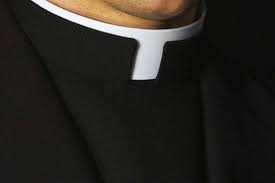Our world is becoming increasingly violent; a world where people are led and misled by half-truths, slogans and ideological clichés. This violence is directed against individuals and institutions; and a new term – cancel culture – has been coined to describe what can happen to individuals, especially to historical figures and even institutions that may not meet the standards of a new and intolerant orthodoxy. We are now all too familiar with the removal and destruction of statues and other forms of art deemed offensive and no longer acceptable. Cancel culture has also become a feature of the Church’s life at least here in North America.
Catholic media have of late reported on a number of cases where priests have been quite simply cancelled, summarily removed from their pastoral assignments and charges, most often without the benefit of any prior consultation or due process. Although it is a phenomenon principally affecting priests in parishes, it has also resulted in the defenestration of members of seminary faculties. There is little of the much vaunted accompanying charity in what may be compared to a drive by shooting; and the church of accompaniment appears more like a church of expulsion and exclusion. It seems as if from the corridors of power resembling a totalitarian regime an order has been issued to engage in what amounts to a war of annihilation (vernichtungskrieg) against perceived enemies, representatives of a church that no longer exists, to quote a career auxiliary bishop; obstacles to the hoped and dreams of those who wish for a ‘modern church’. In a widely viewed and commented on segment, Church Militant TV recently provided a forum for nine America priests, all of whom have been or are in the process of being cancelled. It is a sad episode to watch; one which however anyone who loves their Catholic Faith should watch to the bitter end (This Has to End | The Vortex (churchmilitant.com) so as to understand the gravity of this situation and also to see the palpable pain and sorrow inflicted upon good and zealous priests; men who have suffered and continue to suffer injustice because of their dedication to upholding and promoting the integrity of the Catholic Faith in all its splendor.
Some claim that the numbers of cancelled priests is in the hundreds but such a claim is difficult to substantiate unless one posits that cancel culture has been part of the Church’s culture for quite some time now, certainly for the last fifty tumultuous years and counting. A case may be made for the ascendancy and prevalence of cancel culture in the Church since the aftermath of the Vatican Council and specifically, since the introduction of the Novus ordo Missae, the Mass of Paul VI. It is not an exaggeration to maintain that some elements in the Church have in fact led the way for the ascendancy of cancel culture and in this regard at least the modern church has been a guiding light of sorts, lumen gentium as it were. An unrelenting process of cancellation followed the revolutionary council – so designated by some of its more influential participants and later, by its sober critics. (Even if the texts of the council were themselves on the whole rather conservative)
II
Almost everything was affected by the rebellious Ness of the ‘Spirit of the Council’ unleashed among clergy, religious and the laity. Ironically, and we have been subjected to an overabundance of irony over these many years, this rebelliousness fractured the ideal of unity so succinctly expressed in Dei Verbum, the Dogmatic Constitution on Divine Revelation: It is clear, therefore, that sacred tradition, Sacred Scripture and the teaching authority of the Church, in accord with God’s most wise design, are so linked and joined together that one cannot stand without the others, and that all together and each in its own way under the action of the one Holy Spirit contribute effectively to the salvation of souls (Dei Verbum, 10). The ‘demythologizing’ of Scripture, the rejection of Tradition especially in traditional liturgical expressions, and the outright refusal on the part some influential theologians to respect the teaching authority of the Church (the Magisterium) all contributed to a collapse of the Catholic world. This is the assessment of none other than Pope Paul VI, the enigmatic pontiff who oversaw the Council’s deliberations and its subsequent implementation.
It is not insignificant that on October 13, 1977, on the 60th anniversary of the last apparition of Our Lady at Fatima, Pope Paul VI observed: The tail of the devil is functioning in the disintegration of the Catholic World. The darkness of Satan has entered and spread throughout the Catholic Church even to its summit. Apostasy, the loss of the faith, is spreading throughout the world and into the highest levels within the Church. A few years earlier he had lamented: We believed that after the Council would come a day of sunshine in the history of the Church. But instead there has come a day of clouds and storms and of darkness of searching and uncertainties…It is as if from some mysterious crack, no it is not mysterious, from some crack the smoke of Satan has entered the temple of God (Sermon of June 29, 1972). The spiritual erosion witnessed and experienced by many of us when these frightening words were spoken and since, has now reached a critical mass.
When the Mass of Paul VI was officially promulgated, five full years of liturgical experimentation had already done much to solidify what in retrospect we may define as a hermeneutic of rupture. It was at this point that priests who operated out of what Pope Benedict described as the hermeneutic of continuity and who endeavoured to maintain an integrated perspective and ministry scripturally, canonically and pastorally began to experience the effects of cancel culture either through retirements or in the case of younger priests, through banishment to the peripheries, to use a phrase now in vogue. This has been the game plan for decades. Fr. John Zulhsdorf recently observed: in many cases tradition-inclined priests have been treated savagely by their bishops and other priests. Traditional Catholics have been too. They have been for years, even for decades, prevented by authority (usually through bullying) from doing what their consciences tell them is the right thing to do. They are forced, year in and year out, to do what they think is, if not outright wrong, at least inferior to what could be done with a little leeway and compassion. They are in a perpetual bind, caught between the desire to be a good member of the presbyterate and one with the bishop, while knowing that they can’t stand your ‘rightful aspirations’, as John Paul II called them.
III.
To claim that there are in Catholic dioceses cadres of tradition-inclined or to use a political term, ‘conservative’ priests, is quite simply untenable at this point. Time has taken its toll and ‘liberal Catholics’ who continue to engage a war against so called ‘conservatives’ are now battling phantoms. Tradition-inclined priests are rare because to put it simply, the odds are stacked against such priests or candidates for the priesthood from the get go. Pope Benedict’s Summorum pontificum may have inspired and perhaps even emboldened some priests to be better disposed towards and to embrace Sacred Tradition, but the Francis effect has put an end to this; and it would seem that we have now reached a point where the level of tolerance for traditional ways and practices is at all-time low. Some have quipped that the seventies are back. And this may explain this latest spate of attacks on tradition-inclined priests.
As for the cancelled priests, some may think that it was the celebration of the Traditional liturgy that has brought about their demise but this is certainly not the case absolutely because owing to a glaring defect in their formation, most Latin Rite priests today have no facility in their ritual language – legislation mandating its knowledge notwithstanding. It is more than a matter of liturgical preferences that has resulted in their removal. Some have been sent to psychiatric institutions for upholding the Church’s moral teaching; others have been silenced for their bold preaching. A consistent and integrated pastoral praxis is what has caused them to be treated savagely by their fellow priests, bishops and even by groups of parishioners who over these many decades have been ill formed and by poor catechesis, bad preaching and a liturgy that has devolved into entertainment.
If some priests have looked to Tradition as a guide they have certainly not been unfaithful to the Church’s teaching. Rather, it is those who treated them savagely with the implicit and explicit approval of the hierarchy that have betrayed the Church’s doctrine and broken the bond of charity. Sent into parishes that were pastorally and liturgically mismanaged for decades, against all odds these men have made the desert bloom. More often than not, their reputations were ruined by the outgoing pastor before they even set foot in their new parish. Slandered and defamed, their pastoral assignments began with bitterness and difficulty. Nevertheless, they persevered; enriching the life of the parish principally though not exclusively through their solicitude for the integrity of the sacred liturgy because contrary to what is generally done in most parishes, there is nothing more important than the liturgy. It is in the liturgy, especially in the divine sacrifice of the Eucharist, that ‘the work of the redemption is accomplished’, and it is through the liturgy especially that the faithful are enabled to express in their lives and manifest to others the mystery of Christ and the real nature of the true Church (Sacrosanctum Concilium, 2).
IV.
In giving primacy to the sacred liturgy as the action of Christ, the pastoral efforts of the cancelled priest included more often than not the ad orientem celebration of the Mass, the placement of the Tabernacle in the centre of the sanctuary and the option of receiving Holy Communion on one’s knees and on the tongue. Though more can certainly be said, these actions are often perceived as a declaration of war on the modern church, and the beginning of the campaign of accusations of being divisive and pastorally ineffective often on the part of a vocal minority of parishioners who have no interest in being Catholic, at least not in the traditional understanding of this term. Notwithstanding the rubrics in the Roman Missal, it is not uncommon to hear of bishops ordering priests to avoid ad orientem celebrations of Holy Mass. Ironically, seldom is such haste encountered in correcting liturgical abuses which continue to proliferate and to weaken the faith of those who still attend Holy Mass. The liturgical protocols of the ‘rite of covid’ have not helped.
Nevertheless, the labours and of the prayer and penance of the tradition-inclined priest are not without effect: the number of those attending daily Mass and Feast Days increases exponentially, there is an increase in those who regularly avail themselves of the Sacrament of Confession and the parish community becomes not only vibrant but also a beacon for tradition-inclined laity. As a result, Catholics join such a parish, often driving long distances so as to participate in an authentic and sober liturgy, to be formed by sound preaching and to be enriched by the vast patrimony of Catholic culture and Tradition especially communicated through the rhythm and cycle of the liturgical year. It is hard to believe that a bishop would destroy such a parish but this is what in fact happens when its pastor is cancelled. The callous manner in which violence is visited upon not only the priest of such a parish but also the faithful is nothing short of scandalous.
St. John Vianney, the patron of priests said that the priesthood is the love of the Sacred Heart of Jesus. It is evident from even from a cursory knowledge of these cancelled priests and their parishes that their pastoral praxis or plan to use a modern idiom, is that of the saintly Curé of Ars: a life of genuine piety and devotion that is profoundly Eucharistic, Marian and sacrificial. In such a parish, the schedule revolves around the needs of the faithful and the Church’s calendar; not the pastor’s day off and his vacation times. Perhaps this alone is enough to earn the ire of fellow members of the presbyterate who have reduced their own priesthood to the role of an events coordinator.
The demonization of the conservative priest, the rigid seminarian, the pious faithful and above all of all things traditional has created a hostile environment and many priests who would otherwise be more than favourably disposed to enriching their own priestly ministry and the life of their parishioners with the treasures of tradition are afraid to betray the standards and mores of the liberal establishment. For these men we must pray; that they may be gifted with fortitude. Much of what defines modern Catholicism was born of a rebellious and revolutionary spirit; born of entitlement and a spirit of pride. In the desert that the Church has become over these many years, perhaps the cancelled priest is meant to serve as a witness and model of what it means to depend on Divine Providence. The Psalmist reminds however, that the salvation of the just is from the Lord, and He is their protector in the time of trouble (Ps. 37:39).
V.
The generous response of the faithful in support of these men has been more than encouraging. Whether these men elect to appeal their status, if such an appeal is even possible, is not important. What matters most is that they continue to serve God and His holy Church through their prayer and suffering; and that the lay faithful assist them as best they can. We do well to recall the words of Our Lord: If the world hates you, know that it has hated me before it hated you. If you were of the world, the world would love its own; but because you are not of the world, but I chose you out of the world, therefore the world hates you (Jn. 15:18). The hatred and injury these men are suffering comes not from the world but from a worldly church that at face value is laying waste to what by all accounts is actually working and bearing fruit. How the cancellation of priests and by consequence the communities they faithfully served can be reconciled with the mission of the Church is indeed a mystery. It is spiritually quite disturbing to witness and to experience this hatred without cause (Cf. Jn. 15:25). Such however, is the mystery of iniquity.
Tradition-inclined priests have for a long time now been inconvenient, a reproof, a burden; because their manner of life is unlike that of others (Cf. Wis. 2:12-15). One would think that given the state of the world and the reduction of much of the Church to a worldly vassal, that the hierarchy would be grateful for the dedication and witness of such self-sacrificing men as a source of strength and renewal for presbyterates that are divided and demoralised and increasingly balkanised. Let us pray for these men and for others like them who suffer for their fidelity. In the economy of salvation their suffering may be needed as a source of renewal or perhaps of encouragement to constancy and fidelity for the lay faithful who also suffer with them for their own fidelity. We know that the gates of hell will not prevail and that God will not be mocked. The faithful, both priests and laity who are now suffering for their adherence to the Church’s Magisterium, to the Sacred Scriptures and to Tradition are a remnant, chosen by grace (Rom. 11:5).
When we are confronted with situations that appear incomprehensible we do well to consider them contextually and comparatively. This is what I have attempted to do in this reflection. So-called cancel culture has a long pedigree. The feast day of every martyr recalls an encounter with the forces of cancel culture. As a feature of Catholic life in our time it points to the extent that the spirit of the spirit of the world, the spiritus mundi has come to define the life and activity of the Church in our time. To engage in the struggle to restore the Church as the lumen gentium, light of the nations, and to suffer for this cause is in fact a privilege for despite all the difficulties and all the sacrifices this may entail, as the universal sacrament of salvation, the Church is the only hope for this our fallen world. As it always has been for those who endeavour to follow Our Lord along the path of devout humility, there is also for us today a call for the endurance of the saints, those who keep the commandments of God and the faith of Jesus (Rev. 14:12). The struggle that the Church is enduring requires a generous response of prayer and penance and of a spirit of sacrifice. As for the priests who are now suffering, victims of the politics of personal destruction, may our prayers assist them especially in times of discouragement and sadness. Especially for those who may bitterly feel that they have been thrown away, we invoke the intercession of St. John Henry Newman, himself a victim of clerical intrigue. It was he who composed this timeless meditation:
God has created me to do Him some definite service. He has committed some work to me which He has not committed to another. I have my mission. I may never know it in this life, but I shall be told it in the next. I am a link in a chain, a bond of connection between persons. He has not created me for naught. I shall do good; I shall do His work. I shall be an angel of peace, a preacher of truth in my own place, while not intending it if I do but keep His commandments. Therefore, I will trust Him, whatever I am, I can never be thrown away. If I am in sickness, my sickness may serve Him, in perplexity, my perplexity may serve Him. If I am in sorrow, my sorrow may serve Him. He does nothing in vain. He knows what He is about. He may take away my friends. He may throw me among strangers. He may make me feel desolate, make my spirits sink, hide my future from me. Still, He knows what He is about.












